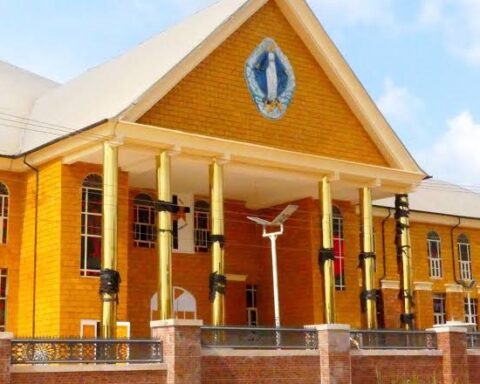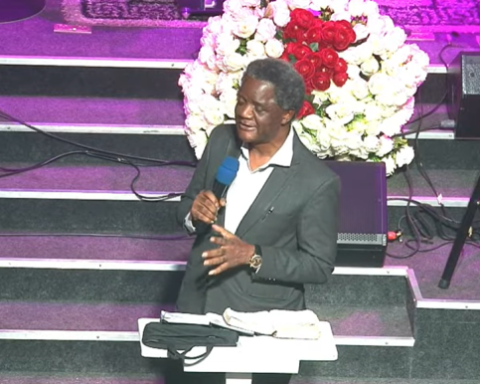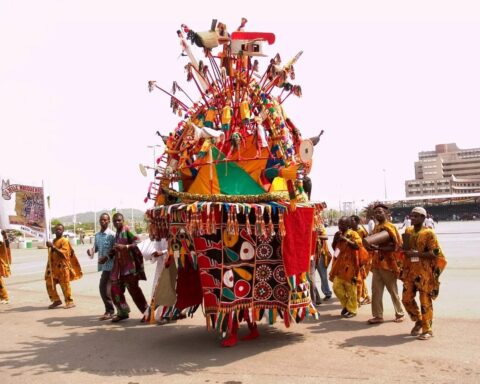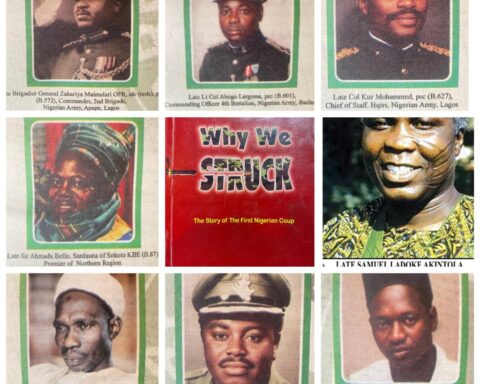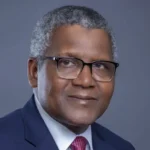By Agbeze Ireke Kalu Onuma, AI-KO
Just days ago, President Bola Ahmed Tinubu finally visited Benue State, arriving after an agonizing delay and a chorus of half-hearted press releases. For mere hours, he stood amid the wreckage of yet another brutal terrorist strike – an atrocity that left families shattered and communities paralyzed – before whisking himself away. Behind him trailed excuses and blame shifting, disjointed statements, and the murderous silence of security chiefs who preferred spin to substance. The entire spectacle reeked of incompetence, an illustration of how disconnected the president is from the people he pledged to lead.
Yet Benue’s suffering is far from unique. Across Nigeria, from the Middle Belt to the North, similar scenes of bloodshed and terror unfold daily – each one met with the same hollow words and the same inaction. I have scoured commentaries, tuned into news alerts, and engaged countless Nigerians in conversation, but none of these offers the faintest promise of change. Instead, they reinforce a grim realization: our leaders have mastered the art of reassurance without resolve.
Reflecting on this pattern of negligence, my mind drifted back to 1999, to the dawn of our Fourth Republic. What stands out is not a linear story of progress, but that of decay – each administration more adrift than the last. Time and again, the men (and, in rare instances, women) we entrusted with power – some having cheated, connived, and stolen their way to the pinnacle of authority – have shown themselves clueless about protecting and uplifting the very citizens who put their faith in them. They have actively sabotaged the oath they swore on inauguration day, replacing it with self-serving theatrics and calculated absence when our nation’s dreams lay in tatters.
It is this conscious rot at the core of our republic, this grim determination of every successive regime to hollow out the ideals of service and sacrifice, that compelled me to write his essay which is born of frustration, yes, but more so of a desperate need to map out exactly how – and why – our democracy has faltered so badly. I set out not simply to catalog failures, but to understand the underlying forces that have allowed “no-show leadership” to become the defining tragedy of modern Nigeria. In probing the betrayals of Obasanjo, Yaradua/Jonathan, Buhari, and now Tinubu, I aim to trace the contours of a systemic collapse and, in doing so, spark the collective reckoning our nation so urgently requires.
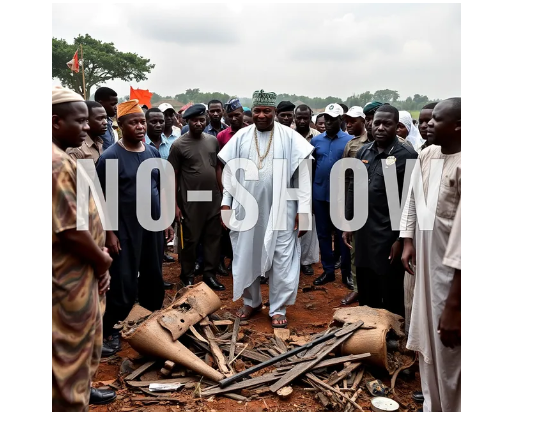
Nigeria’s journey towards democracy since 1999 has been marred by a paradox that defies easy explanation. Our presidents, sworn in with solemn oaths designed to uphold the sanctity of the Constitution and protect the welfare of every citizen, have all too often been conspicuously absent during the nation’s darkest hours. Instead of serving as steadfast guardians of our collective destiny, they have deployed state power to further personal or political agendas. This pattern of “no-show leadership” – of being physically present yet functionally absent – has not only eroded our institutions, it has systematically corroded the very social contract that should bind a nation together.
The Presidential oath of office is meant to be a binding covenant – a pledge that commands leaders to “preserve, protect and defend the Constitution” and to put the interests of the nation and its citizens above their own ambitions. It is not a decorative formality, but rather a solemn promise to ensure the security, prosperity, and justice of every Nigerian. The language of the oath enshrines a commitment to the common good and serves as a roadmap for ethical governance. Yet, from the moment our presidents step into office, this sacred promise has frequently been reduced to an empty platitude, with each administration interpreting and, all too often, abusing it to justify inaction at critical moments and overreach at others.
Under Olusegun Obasanjo, we witnessed the early seeds of this widespread malaise. Although his time in office began with apparent resolve, his approach quickly morphed into one in which state institutions were weaponized to silence dissent and eliminate political adversaries. The presidential oath, which beckoned him to serve the Nigerian people selflessly, was reinterpreted as a license to pursue personal vendettas under the cloak of national interest. Whether it was the questionable handling of the energy sector – where billions of dollars meant for development mysteriously vanished – or the orchestrated use of security forces to detain political opponents, Obasanjo’s legacy is stained by moments where his public declarations were in stark contrast with the needs of a nation crying out for genuine leadership.
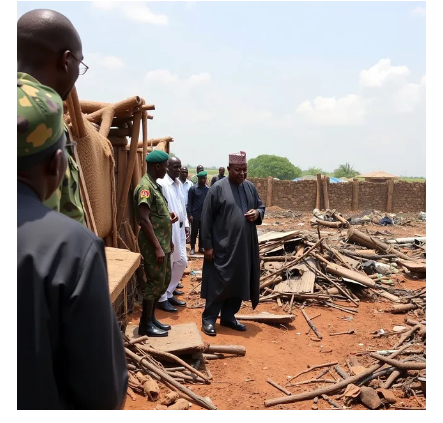
The transition to Buhari’s regime, initially promised as a fresh start for change and integrity, only deepened the crisis of leadership. Buhari’s presidency became synonymous with a severe security vacuum, where violence and injustice flourished unchecked. Thousands of Nigerians lost their lives as bandits roamed freely and terror reigned over communities. Economic mismanagement reverberated through every level of society as inflation soared and state resources were depleted. Here again, the presidential oath was compromised. Instead of fulfilling his solemn duty to protect and ensure the well-being of all citizens, Buhari’s inaction in times of national emergency – combined with strategic, self-serving displays of power – left the nation vulnerable and its institutions weakened. His selective mobilization of state security forces, used more as tools to entrench his power than uphold the law, represented a blatant disregard for the responsibilities enshrined in the oath he took.
With the advent of President Bola Tinubu, the pattern of absent yet ostentatious leadership has taken on new, even more alarming dimensions. Tinubu’s very first act – a stark declaration that “subsidy is gone” – was executed without thoughtful consultation, adequate planning, or the necessary safeguards to protect the people. This abrupt policy led to a 200% overnight spike in petrol prices and a domino effect that pushed inflation into the stratosphere. As marketplaces crumbled and transportation services collapsed, Tinubu was often seen on foreign trips, leaving his country to grapple with the immediate fallout of decisions that appeared to prioritize political expediency over the welfare of Nigerians. His administration’s inability to respond effectively to escalating violence – where bandits now control entire communities and over 10,000 lives have been lost in the wake of insecurity – stands in stark opposition to the sacred trust embedded in the presidential oath. The pledge to protect the lives and property of citizens has been surrendered, replaced by a regime that relies on symbolic victories and self-serving maneuvers rather than substantive and compassionate governance.
This disturbing evolution of presidential conduct points to a much deeper systemic issue in Nigeria’s political framework – a “permanent constitutional transition” born out of the over-centralization of power. Our leaders, held accountable for everything yet responsible for nothing, have created an environment where authority is less about fulfilling the public trust and more about personal aggrandizement. Accountability institutions such as the EFCC and INEC, established to serve the citizenry, have too often been manipulated to reinforce the interests of those in power. The very fabric of our democracy has been undermined by a system that rewards inaction and punishes dissent, where the oath of office is treated as a mere formality rather than the cornerstone of ethical leadership.
The existential cost of this ongoing betrayal is hard to quantify. Insecurity has burgeoned into a crisis that has left many regions effectively ruled by bandits, while rampant inflation reduces families to subsistence living on pauperized wages. The state’s neglect of its educational institutions has resulted in universities churning out graduates marinated in a culture of despair. When we speak of leadership in Nigeria, we speak not only of the empty rhetoric and grandstanding on television screens, but of a tangible absence in the critical moments when decisive action was desperately needed – a betrayal of the oath that each president swore to uphold.
During General Obasanjo’s tenure from 1999 to 2007, I observe that his period in office established a corrosive template for governance – one marked by the deliberate mobilization of state institutions against perceived adversaries. A striking illustration of this approach was the notorious illegal midnight abduction of Governor Chris Ngige by security forces acting on presidential directives. Despite this show of force, the anticipated democratic dividends failed to materialize. Events such as the vanishing of a $16 billion power sector investment, which left generation capacity in a condition arguably worse than it had been before 1999, underscored a broader mismanagement and misprioritization of vital national interests.
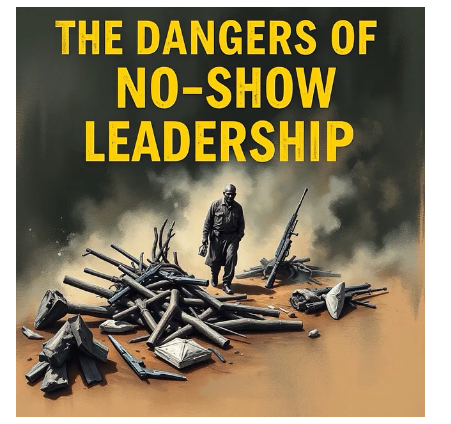
Legacy projects dominated the agenda during this period, with ambitious initiatives like the presidential library and the solicitation of billion-naira “donations” from government contractors coming to the forefront. These efforts, in my view, diverted crucial resources and focus from needed infrastructural and governance reforms, creating gaps that, over time, contributed to the emergence of militant groups such as MEND. The prioritization of legacy over substantive reform signaled a troubling shift, one in which the consolidation of power increasingly took precedence over delivering genuine democratic progress.
While reflective controversies in Nigeria’s political landscape feature episodes involving judicial directives – such as the court orders issued for MKO Abiola’s release and the tragic, extrajudicial killing of Kudirat Abiola – these incidents occurred prior to Obasanjo’s time in office and thus should not be directly ascribed to his administration. Nevertheless, they provide a historical backdrop that illuminates the persistent challenges of selective constitutional adherence and executive overreach in Nigerian politics. In Obasanjo’s own tenure, observable patterns of disregarding judicial mandates further reinforced concerns about the selective application of constitutional principles, where state power often seemed more concerned with political consolidation than with upholding the rule of law.
Perhaps most disconcerting was the administration’s silence when confronted with the aggressive implementation of Sharia law in northern states – particularly in Zamfara – despite the clear constitutional implications of such policies. In my assessment, this absence of moral and political leadership represented not merely a failure to stand up to unconstitutional measures, but a deliberate withdrawal from defending the liberal democratic ideals that are essential for national integrity. The culmination of these deficiencies was poignantly demonstrated by the orchestration of the 2007 electoral process. The engineered electoral heist that installed a terminally ill successor, sacrificing electoral integrity for political control, stands as an ultimate betrayal of the nation’s constitutional and democratic foundation.
In contemplating his legacy, I am aware of the fact that despite the broader historical context of Nigeria’s challenging political culture, Obasanjo’s tenure carried its own weight of selective governance and misaligned priorities. These systemic issues – with the particularly egregious omission of a resolute stance against the Sharia law push in Zamfara and elsewhere – continue to shape our discourse on political morality and the urgent need for a renewed commitment to the principles of constitutional governance and democratic accountability.
After a lot of scheming and backroom deals, Obasanjo bowed out, for the Yaradua/Jonathan interregnum. I remember one humid evening in Lagos back in 2010 when the news came in which. jolted everyone in its wake. I was hurrying home from work when the news broke that Boko Haram had seized several border towns. At that moment, the surreal collision of extravagance and despair became starkly apparent: while elite circles were reportedly toasting at lavish champagne parties, distraught parents in Chibok gathered in darkened rooms, anxiously searching for their abducted daughters. I recall the shock in the air, as neighbors exchanged anxious glances and spoke about the apparent absence of a government that should have been safeguarding our lives rather than celebrating in oblivion.
In those uneasy times, the political landscape was further complicated by the peculiar approaches of the Yar’Adua and Jonathan administrations. I remember the debates among my friends and family over President Yar’Adua’s candid admission that his electoral victory might have been inherently flawed – a controversial confession that, while brutally honest, did little to instill confidence in our democratic processes. The air was thick with skepticism as many lamented that his government had neither the resolve nor the vigor to implement the comprehensive electoral reforms proposed by the Uwais Committee. Conversations at local gatherings, filled with both hope and exasperation, often reverted to this singular moment of transparency – a moment that underscored the fragile state of our nation’s democratic promise.
Then came the presidency of Goodluck Jonathan, a tenure that would cement the bizarre nature of an already troubled era. The nation was dumbstruck, witnessing a leader whose conspicuous absence during national crises was as jarring as it was disconcerting. While Boko Haram’s forces expanded their territorial reach, President Jonathan was frequently seen at opulent social gatherings. I recall reading accounts of lavish parties, with champagne flowing freely, even as official news broadcasts laid bare the heart-wrenching reality of families in Chibok desperately searching for their missing daughters. This stark dichotomy between the discord on the streets and the frivolity in the corridors of power left many of us questioning how such apathy could be allowed to persist.
The consequences of this disconnect were glaring in multiple dimensions. A severe security vacuum emerged; Boko Haram’s unchecked aggression allowed them to dominate at least twenty local government areas, a statistic that reverberated worryingly through every community meeting and news segment. The inadequacy of economic oversight was equally disturbing. I heard, with a mix of disbelief and anger, that rampant oil theft had escalated to the point where estimates suggested losses approaching 400,000 barrels daily – a figure cited by international news sources that underscored the deep-rooted corruption and inefficiency in managing our nation’s natural resources. Meanwhile, the unresolved scandal involving $20 billion allegedly misappropriated by the Nigerian National Petroleum Corporation (NNPC) compounded the growing sense of betrayal felt by ordinary Nigerians. These systemic failures became the subject of relentless media scrutiny, chronicling a pattern of neglect that undermined both our national security and economic stability.
What I found most disconcerting during these years was the manner in which state power was wielded. I recall the grim images of military forces clashing with protesters during the #BringBackOurGirls demonstrations – a movement driven by desperate citizens who demanded accountability and the safe return of their children. Instead of a robust, transparent response, the government appeared to channel its energies into quelling dissent, at times resorting to negotiating ransom payments with kidnappers. This disconcerting misuse of authority established a dangerous precedent: a presidency that could remain dormant when national security was at stake yet erupt into harsh repression when citizens dared to demand accountability.
Reflecting on the era, it is clear that Nigeria was adrift in what I can only describe as phantom governance – a period where the very real needs of a nation were sidelined by political expediency and a disturbing disconnect from the lived realities of its people. Through my own experience and the collective memories of those who witnessed these events, this chapter in our history was marked by surreal contradictions, where transparency coexisted with a breathtaking absence of decisive leadership. This epoch – a haunting blend of overt neglect and sporadic, misdirected displays of power – remains a cautionary tale. It compels us to demand a future where leadership is both present and accountable, protecting the vulnerable while fortifying our nation’s democratic foundations.
Buhari’s presidency – from 2015 to 2023 – is a period now widely remembered for its chronic lack of effective leadership. His style, often cynically described as “body language” governance, reduced the presidency to a series of appearances rather than active intervention. Former President Obasanjo’s biting remark, “We’re all victims of your incompetence…,” encapsulated the shared disillusionment of many Nigerians. For those of us who lived through this time, every instance of presidential inaction translated into real suffering on the ground, as our institutions were left to fend for themselves.
On national security, the consequences of this leadership vacuum were nothing short of catastrophic. Bureaucratic inaction allowed armed bandits and criminal elements to flourish. For example, in Zamfara State alone, reports confirmed that 529 villages fell under the control of bandits, whose relentless attacks claimed the lives of over 10,000 Nigerians during the final two years of Buhari’s term. I recall the accounts from communities ravaged by violence, and the reports by organizations such as Amnesty International, which recounted the brutality with unflinching clarity. What compounded the tragedy was the calculated retention of key security personnel based not on competence, but on unwavering loyalty. Even more disturbing was the “repentant terrorists” program – a policy that co-opted convicted criminals into serving as security contractors – thereby institutionalizing a cycle of mistrust and violence rather than restoring order.
At the same time, Nigeria’s economy was unraveling under policies that were reckless and unsustainable. I often spoke with local business owners who described how rampant inflation had eroded their livelihoods and stifled entrepreneurial efforts. One manifestation of this economic mismanagement was the near-irreversible devaluation of our currency: it is reported that almost ₦23 trillion was printed by the Central Bank without the necessary monetary safeguards in place. News outlets echoed these concerns, detailing how such excessive monetary expansion not only destabilized consumer confidence but also rendered everyday commodities increasingly unaffordable. I remember the anxiety expressed by market vendors and shopkeepers, whose daily struggles became emblematic of a broader economic crisis that hurt ordinary Nigerians.
The failure to adhere to constitutional mandates further marred Buhari’s legacy. One example was his administration’s repeated refusal to comply with over a dozen court orders mandating the release of Nnamdi Kanu. Despite clear judicial rulings, Buhari’s government remained obstinately non-compliant, only responding when separatist threats were perceived to be dangerously close to his personal interests in Daura. This blatant disregard for the rule of law not only weakened the credibility of the judicial system but also set a dangerous precedent that legality could be selectively enforced at the whim of political convenience. For many of us, it was not merely a legal oversight but a moral betrayal that shook our confidence in the nation’s commitment to justice.
Adding fuel to the fire was the manipulative use of state power, particularly through the Economic and Financial Crimes Commission (EFCC). Rather than serving as a non-partisan guardian against corruption, the EFCC during this era was employed to target critics and political opponents while shielding loyalists. I recall numerous media exposés showing high-profile figures, such as former Kano Governor Abdullahi Ganduje, operating with apparent impunity even when damning video evidence appeared – evidence that captured illicit exchanges of cash and favors. Meanwhile, those who dared question the regime found themselves on the receiving end of aggressive anti-corruption raids. This selective application of justice not only undermined genuine efforts to tackle corruption but also entrenched a culture of political favoritism and impunity.
Perhaps the most jarring contradiction of Buhari’s administration was the disparity between extravagant state expenditures and the neglect of citizens’ daily needs. At a time when ordinary Nigerians faced severe economic hardships, the government funneled astronomical sums into luxurious spending. An annual expenditure of ₦12 billion for the maintenance and operation of presidential jets contrasted with the suffering of many who, for instance, bore the brunt of a nine-month doctors’ strike over unpaid salaries. I vividly remember the outrage expressed during community meetings, where families recounted the struggles of accessing affordable healthcare and basic necessities. In the public discourse, the lavish spending was seen as emblematic of a regime more concerned with ostentation than with the welfare of the country.
As I reflect on this era, I recall a long list of failures that defined Buhari’s presidency. His reign was marked by a constant lapse in decisive leadership – a period when our national security collapsed into chaos, economic policies undermined the stability of our currency, and constitutional mandates were treated as negotiable. In every instance – from the promotion of unqualified security personnel and the perverse co-optation of criminals, to the selective enforcement of laws and the misdirected use of anti-corruption agencies – there lay an enduring neglect of the very principles that should have guided our nation. For countless Nigerians who endured these challenges firsthand, this period stands as a stark reminder of the profound cost of leadership that is absent, disengaged, and driven by personal and political expediency rather than by the urgent needs of the people.
Then came BAT. I remember watching the news on that fateful day in 2023 when President Bola Tinubu, with a single, striking declaration – “subsidy is gone” – set in motion a series of events that many later described as the epitome of misapplied decisiveness. This announcement, made without apparent planning, consultation, or the establishment of safety nets, sent shockwaves throughout Nigeria. Within hours, petrol prices spiked by as much as 200% overnight, leaving commuters and business owners reeling as transportation virtually ground to a halt. In cities and rural communities alike, the cost of fuel – and by extension, the cost of living – suddenly skyrocketed, all while the president was frequently seen on foreign trips. This paradox of a visible leader whose actions were remote, if not absent, painted a stark picture of governance in crisis, one that demanded urgent scrutiny and accountability.
As the immediate economic fallout unfolded, it became clear that Tinubu’s administration was more focused on symbolic gestures than on substantive governance. In the wake of the subsidy removal, markets from Lagos to Kano experienced acute turmoil, with observers noting that the policy was enacted without the necessary consultation with stakeholders or protective safety nets. Reputable bodies such as KPMG and reports on Legit.ng documented the soaring inflation, which reportedly reached 34%, and the rapid devaluation of economic stability. This miscalculated decisiveness not only exposed the vulnerabilities of the Nigerian economy but also left countless citizens grappling with a sudden loss of purchasing power and security. The events of that day continue to serve as a reminder of the consequences when policy is executed without proper foresight or planning.
The chaos extended well beyond the economic sphere. In national security, the fallout was both immediate and deadly. With the government’s attention diverted by diplomatic and symbolic acts, bandits and armed groups found fertile ground for expansion. Reports by Amnesty International revealed that over 10,000 Nigerians – 10,217 in the first two years of Tinubu’s term – lost their lives to violent attacks perpetrated by these groups. Villages in Zamfara and across other states fell under the sway of criminal elements, as local authorities appeared ill-equipped to counter the emergent threats. Moreover, security responsibilities, frequently outsourced to governors whose policies critics claim have a tendency to “pamper terrorists,” only deepened the regional instability. This complete erosion of state security has left a nationwide legacy of grief and highlighted a governance model that was conspicuously absent at times when decisive action was most needed.
On the economic front, Tinubu’s administration embarked on a controversial naira flotation policy that had devastating consequences for ordinary savers and investors alike. Executed hastily and without robust safety measures, this policy sent the Nigerian currency crashing to approximately ₦1,900 per dollar, a figure that obliterated hard-earned savings and further unsettled the nation’s already fragile financial landscape. At the same time, the government made headlines for expanding the cabinet to 75 ministers – Africa’s largest – an extravagance that, when set against the economic backdrop, appeared both excessive and tone-deaf. Reports indicated that about ₦14.2 billion was subsequently spent on luxury vehicles, all while the administration disbursed a scant monthly palliative of ₦8,000 to vulnerable populations. These contrasting fiscal priorities underscored the deep disconnect between high-level decision-making and the everyday hardships faced by millions of Nigerians.
Even more troubling was the administration’s handling of human rights and institutional accountability. Despite detailed human rights reports from organizations like Amnesty International, which documented extrajudicial killings by the Army in the Southeast and other severe abuses, Tinubu’s government repeatedly failed to address these issues. Promises to implement reforms such as those demanded by the #EndSARS movement languished without tangible progress. Instead of channeling resources toward safeguarding human life and upholding citizens’ rights, enormous sums were funneled into legal defenses and public relations campaigns aimed solely at defending Tinubu’s contested mandate in election litigation. This selective and inconsistent application of constitutional vigor has fostered a perception that the administration prioritizes political survival over the security and dignity of its people.
Listening to the voices of everyday Nigerians – the shopkeeper in Kaduna whose business was decimated by surging transportation costs, or the families in Zamfara grieving the loss of loved ones in an environment where banditry runs rampant – one is left with an overwhelming sense of betrayal. For those of us who lived through these tumultuous events, Tinubu’s presidency has become a potent reminder of how highly visible gestures and grand pronouncements are a poor substitute for the committed, hands-on leadership that a nation in crisis desperately needs. This period has been defined by a glaring disconnect between the spectacle of leadership on diplomatic stages and the absence of effective governance at home, a phenomenon that not only warrants thorough critical analysis but also serves as a sober call to action for future reforms.
Nigeria’s costly legacy of “no-show leadership” did not emerge overnight; it is the product of decades of structural and constitutional distortions that began during military rule and have since metamorphosed into a permanent constitutional transition. The 1999 Constitution, with its inherent over-centralization of power, laid the groundwork for an imperial presidency – a system where leaders are held accountable for everything yet remain responsible for nothing. This model, widely replicated by state governors, has seeped into every facet of Nigerian governance. Institutions that were meant to serve as impartial agents of accountability, such as the EFCC and INEC, have too often been harnessed to safeguard presidential interests rather than protecting the people. The impeachment of governors under Obasanjo’s watch became a tool to eliminate political foes rather than a measure to reinforce honest governance. In a country where 63% of Northern Nigerians face multidimensional poverty, the practice of trading “rice and wrappers” for votes has left electorates too desperate or disillusioned to ever demand genuine accountability. This, in my view, is why escalating insecurity has failed to spark a mass protest – a grim resignation to the status quo.
Over the span of Nigeria’s 25-year democratic experiment, the true peril has not been the bold acts of presidential ambition but the chronic absence of courageous leadership at moments when the nation needed it most. From Obasanjo’s infamous energy sector larceny that siphoned developmental funds, to Buhari’s near-lethargic response that allowed bandits to seize control of villages and claim thousands of lives, and now Tinubu’s reckless economic disruptions that have rendered basic goods unaffordable – each regime has perfected the art of being present solely for self-preservation. They are masters of orchestrating grand pronouncements and high-profile public displays, yet when history demanded decisive and transformative action, they were conspicuously absent. This pattern of inaction, camouflaged by outward symbols of authority, has left our institutions paralyzed and our citizens vulnerable.
The consequences of this systemic failure are existential. Bandits now govern territories larger than some states, inflation is slowly stifling families by eroding their purchasing power, and universities churn out graduates who seem literate in despair rather than empowered for progress. Amnesty International’s stark documentation of 10,217 violent deaths within just the first two years of Tinubu’s tenure is more than a statistic – it is a piercing indictment of a government that has allowed human lives to be collateral damage in its struggle for self-perpetuation. The Nigerian state, designed to guarantee security and welfare as mandated in Chapter 2 of the Constitution, finds those sacred promises repeatedly trampled upon. Section 14(2)(b) of our Constitution, intended to secure the state’s primary function as a protector of its people, has all too often remained an ornamental text – a promise unfulfilled.
Breaking free from this oppressive cycle demands more than the ritualistic act of elections. Our nation urgently requires a fundamental reengineering of the very framework that has enabled an imperial presidency – a reform that decentralizes power and makes genuine accountability the cornerstone of governance. Citizen-led oversight must replace the outdated, donor-driven assessments that currently validate political malpractice. Moreover, our judicial system must find the courage to punish leadership delinquency with impartial resolve, rather than bending to the pressures of politically expedient outcomes. Without these transformative changes, Nigeria is poised to witness not merely a failed state, but the collapse of its democratic civilization.
Nigeria’s democratic experiment over the past quarter-century has been marred by a fundamental contradiction: while our presidents make grand public appearances, they have consistently failed to honor the deep, binding commitments of their presidential oath. From Obasanjo’s early tactics to Buhari’s neglect and Tinubu’s disruptive policies, each regime has demonstrated a disconcerting pattern of being present in form but absent in function when the country’s very existence was at stake. Their actions have not only betrayed the promises of their inaugurations, but have also left behind a legacy of escalating insecurity, institutional decay, and a battered Constitution. This is not a case of poor leadership – it is an existential betrayal that has compromised Nigeria’s future. The time has come for a dramatic pivot: for Nigeria to demand a new era of leadership where the presidential oath is not just recited, but lived every day; where the promise to defend the nation is honored with decisive actions, compassionate governance, and a steadfast commitment to justice. Unless we redefine what it means to lead – beyond symbolic gestures and empty promises – the next chapter in Nigeria’s history may well be written by those who remain invisible when leadership is needed most, leaving our nation’s soul to wither away in the shadows of unmet oaths.
We expect our president to be more than a distant figurehead; we demand a leader whose presence is both tangible and transformative. Our nation requires a president who is available – present on the ground in times of crisis, actively involved in the challenges faced by ordinary Nigerians, and accessible whenever circumstances demand decisive action. The president did not aspire merely to be an icon on paper; he ran for office with the promise of being there in times of need. It is our right to expect a leader whose sleeves are perpetually rolled up and whose boots are firmly strapped, prepared to engage in the tedious, dirty, and often thankless tasks that are the backbone of genuine governance.
We refuse to accept the model of absentee leadership reminiscent of absentee landlords in Europe or 19th-century Russia – figures who dictated from afar while their subjects bore the brunt of neglect. Our president should not hide behind layers of delegation or cede responsibility when difficulties arise. Instead, he must honor the solemn pledge he took in his oath: to be the commander in chief, not merely the delegator in chief. This means he should act decisively and personally, rather than deferring critical actions to a network of appointees who may lack the will or capability to address emergencies effectively.
In today’s Nigeria, symbolic gestures such as high-profile visits to disaster areas – accompanied by grand fanfare but little follow-through – fall woefully short of the real leadership our nation so desperately needs. What is required is a leadership style that goes beyond ceremonial appearances to provide genuine empathy, support, and pragmatic solutions in the face of adversity. Our president must be seen where it matters most – engaging directly with communities in crisis, providing hands-on support, and actively orchestrating effective responses rather than merely observing from a distance.
If our presidents continue to pass the buck, relinquishing their responsibilities to governors or other appointees, then it is time for us to take a hard look at our constitutional framework. We must engage in a serious review of the constitution to consider devolving more power to local governments, empowering governors to act independently when the situation demands, and ensuring that leadership accountability is embedded at every level. This cycle of delegation that excuses a president from being present and proactive has persisted for far too long, and it must come to an end.
Ultimately, this is not just about a leadership style – it is a fundamental issue of accountability and the very definition of what it means to lead. Our nation deserves a president who embodies the spirit of active engagement, who stands shoulder to shoulder with the people during the darkest hours. The era of absentee presidents, where crucial decisions are made from behind closed doors while the nation suffers, must finally be consigned to the past. It is time for a new era of leadership in Nigeria – one that is defined not by grandiose appearances or the optics of power, but by concrete actions, unwavering commitment, and a heartfelt promise to put the welfare of the nation above all else. This is the call for meaningful change, and it is a call that cannot be ignored any longer.
In the final analysis, Nigeria’s predicament is not a distant or abstract dilemma – it is here, in our villages, our markets, and our homes. The pattern is clear: when leaders are ghosts haunting the echelons of power, the citizens are left to navigate a landscape of neglect and despair. When leadership is defined by symbolic gestures and self-serving theatrics, the cost is paid in the currency of human lives and shattered dreams. For those of us who have borne the brunt of this no-show leadership, the message is unambiguous: our future demands leaders who are present where it matters most – protecting the vulnerable, uplifting the impoverished, and staunchly defending the constitutional order. Otherwise, we risk perpetuating a tragic cycle, where the absence of genuine leadership turns the vibrant promise of our nation into a waking nightmare. When leaders remain absent at times of dire need, the danger is not something that looms on the horizon – it is the harsh reality in which we live. And, as the stark adage reminds us, when leaders are ghosts, citizens become corpses.

